Honoring Some Incredible Women who Shaped Today’s Work in Psychology
This month and every month, we honor the incredible female and femme psychologists who have shaped how psychology is practiced today. Below are a handful of their many stories.
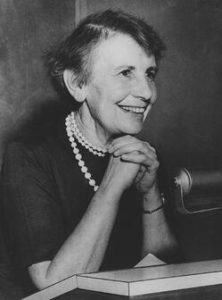
Anna Freud
(1885-1982)
Anna Freud is the youngest daughter of Sigmund Freud, and while not as widely recognized as her father, she has her own groundbreaking contributions to ego psychology. This includes the analysis of defense mechanisms that the ego uses to protect itself from anxiety, and the foundations of child psychoanalysis. While Sigmund Freud described a number of defense mechanisms, it was Anna who provided the clearest and most comprehensive look at mechanisms of defense in her book The Ego and the Mechanisms of Defense (1936). Many of these defense mechanisms (such as denial, repression, and suppression) have become so well-known that they are used frequently in everyday language. She is also recognized as the founder of child psychoanalysis, despite the fact that her father often suggested that children could not be psychoanalyzed (Very Well Mind).
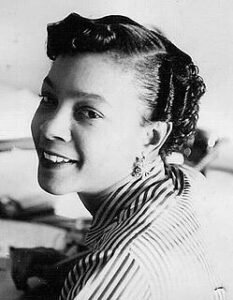
Mamie Phipps Clark, PhD
(1917-1983)
Dr. Clark’s research on the cognitive development of Black youth was instrumental in forming today’s understanding of both internalized racism and institutionalized racism in public education. Dr. Clark and her husband, Dr. Kenneth Clark, partnered to extend her thesis research on self-identification in preschool aged black children. This work was later developed into the famous doll experiments that exposed internalized racism and the negative effects of segregation for African-American children. Their expertise allowed them to testify as expert witnesses in several school desegregation cases, including Brown vs. Board of Education in 1954, when they co-authored a document called the Social Science Statement that included references to their work on the effects of racial segregation on personality development. This was the first time social science research was used in a Supreme Court ruling. In 1946 Dr. Clark’s brought her mental health work in the academic sphere to the community in Harlem, NY when she founded the Northside Center for Child Development to provide underserved children and their families in the community with comprehensive psychosocial services (APA).
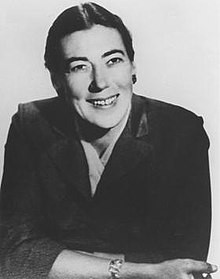
Evelyn Hooker, PhD
(1907-1996)
Dr. Hooker’s 1957 paper “The Adjustment of the Male Overt Homosexual” debunked the myth and prejudice that homosexuality was a mental illness, providing scientific backing to existing and post-Stonewall gay rights activism. This work supported activism against conversion therapy and was instrumental in the APA’s decision to remove homosexuality as a mental disorder from the Diagnostic and Statistical Manual of Mental Disorders in 1973. Her work argued that a false correlation between homosexuality and mental illness had formed the basis of classifying homosexuality as a mental disorder by studying only a sample group that contained homosexual men with a history of treatment for mental illness. This is of critical importance in refuting cultural heterosexism because it argues that homosexuality is not a developmentally inferior to heterosexuality as it was previously considered (APA).
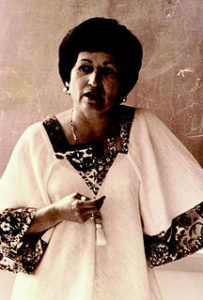
Martha Bernal, PhD.
(1931-2001)
In 1962, Martha Bernal became the first woman of Mexican descent to complete her Ph.D. in clinical psychology. After realizing how psychology was filled with inaccurate assumptions about race and the treatment of marginalized groups, she became dedicated to the field of Cultural and Ethnic Psychology and began conducting minority training for clinicians. Bernal also helped establish the Board of Ethnic Minority Affairs of the American Psychological Association and founded the National Hispanic Psychology Association. In 1979 she received a National Research Service Award from NIMH that allow her to study the preparation of psychologists to work with multicultural populations, which led to her developing and teaching methods of culturally responsive care. She inspired generations of Latino/as to pursue careers in psychology, while dedicating her career to training psychologists on the importance of culturally responsive care, especially knowing the difference between cultural exploitation and appreciation (Webster).
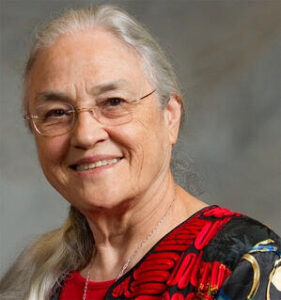
Marigold Linton, PhD.
(1936-)
Dr. Linton is a leader in long term memory scholarship, with a career that has established her as a tireless advocate for Native peoples in the advancement of degrees in the sciences. Dr. Linton was the first Native American to receive a doctorate in psychology and her research on long-term memory continues to be widely cited. In 1969 she founded the National Indian Education Association (NIEA), which is a nonprofit organization that aims to give Native peoples a voice in education. She was a founding member of the Society for Advancement of Chicanos and Native Americans in Science, and has held several national-level appointments in recognition of her career-long dedication to training students in the sciences, obtaining more than $13 million in support from the National Institutes of Health (NIH) to support programs that enable many American Indians to earn advanced degrees in the sciences. Her service to the training of students in the sciences has been recognized nationally, which has led her to hold a number of national appointments focused on the equality of opportunities and education in science and engineering (APA).
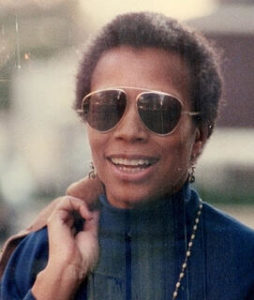
E. Kitch Childs, Ph.D
(1937-1993)
Dr. Childs (“Kitch” to friends and colleagues) was a clinical psychologist and queer activist known for her participation in the women’s liberation movement, and her pivotal work in the fields of feminist therapy, LGBTQAI+ rights, anti-oppression, anti-racism and anti-sexism activism, culturally relevant mental health treatment for Women of Color, and the decriminalization of sex work. In 1969, she became a founding member of the University of Chicago’s Gay Liberation Front and helped establish the Association for Women in Psychology.
As both a psychologist and social activist, Dr. Childs’ work focused on the experiences of Black women and how feminist approaches to therapy would encourage self-understanding and empowerment. She granted access to therapy for communities that were traditionally mistrustful of such services, using therapeutic techniques that deliberately broke hierarchal barriers. For example, Dr. Childs conducted sessions in her home, with and both her client sitting on her living room floor speaking to each other on level ground. She practiced feminist and group therapy, firmly guided by the client’s strengths and fostering of her self-esteem and feelings of competence and forming a sense of community. Dr. Childs’s work tackles the intersectional needs of individuals and groups with marginalized identities, and inspires practitioners who follow to seriously consider existing power dynamics in the mental health care space, and to root their practice in humanity (Feminist Voices).

Reiko True, PhD
(1933-)
Dr. True created the first Asian American Community Mental Health Program (AACMHP) in 1970, making her the first Asian American psychologist to head a community mental health system. The AACMHP was the first mental health center in California to focus on the needs of a non-white population, and Dr. True ensured staff were trained in Asian languages and culture in order to most effectively deliver culturally responsive care to their clients.
After finishing her graduate studies at CSPP, Dr. True joined the NIMH office in San Francisco where she worked to help community groups and the local governments of Nevada and Arizona develop community mental health centers. In 1985, she became the first female director of NIMH Community Mental Health Services and Substance Abuse Services. Her work was able to demonstrate the importance of creating community-oriented, multicultural focused programs, as well as creating programs specifically for women with children. Dr. Reiko True has worked tirelessly throughout her career and has made an exceptional amount of contributions to the field of psychology (APA).
29 March 2021
Recent Articles
Enhancing Behavioral Health Care: Insights from the 2023 Society for Digital Mental Health Conference
Contributed by Lauren Weiner, Ksana Health Director of Clinical Science. On June 21, 2023, Ksana Health recently attended the 2023 Society for Digital Mental Health Conference. The event highlighted the role of...
Continue readingKsana Health selected to join the Beyond Language Studio!
Ksana Health is jazzed to be selected to join the Beyond Language Studio, a collaboration between Sorenson and Newlab supporting deep-tech startups building high-impact, innovative products, and services through real-world pilot projects. The...
Continue readingKsana Health 2022 Highlights (in Video)
For Ksana Health, 2022 was a year of perseverance, learning and optimization. We are grateful to all the partners, collaborators and supporters who made the year what it was. The video below...
Continue reading